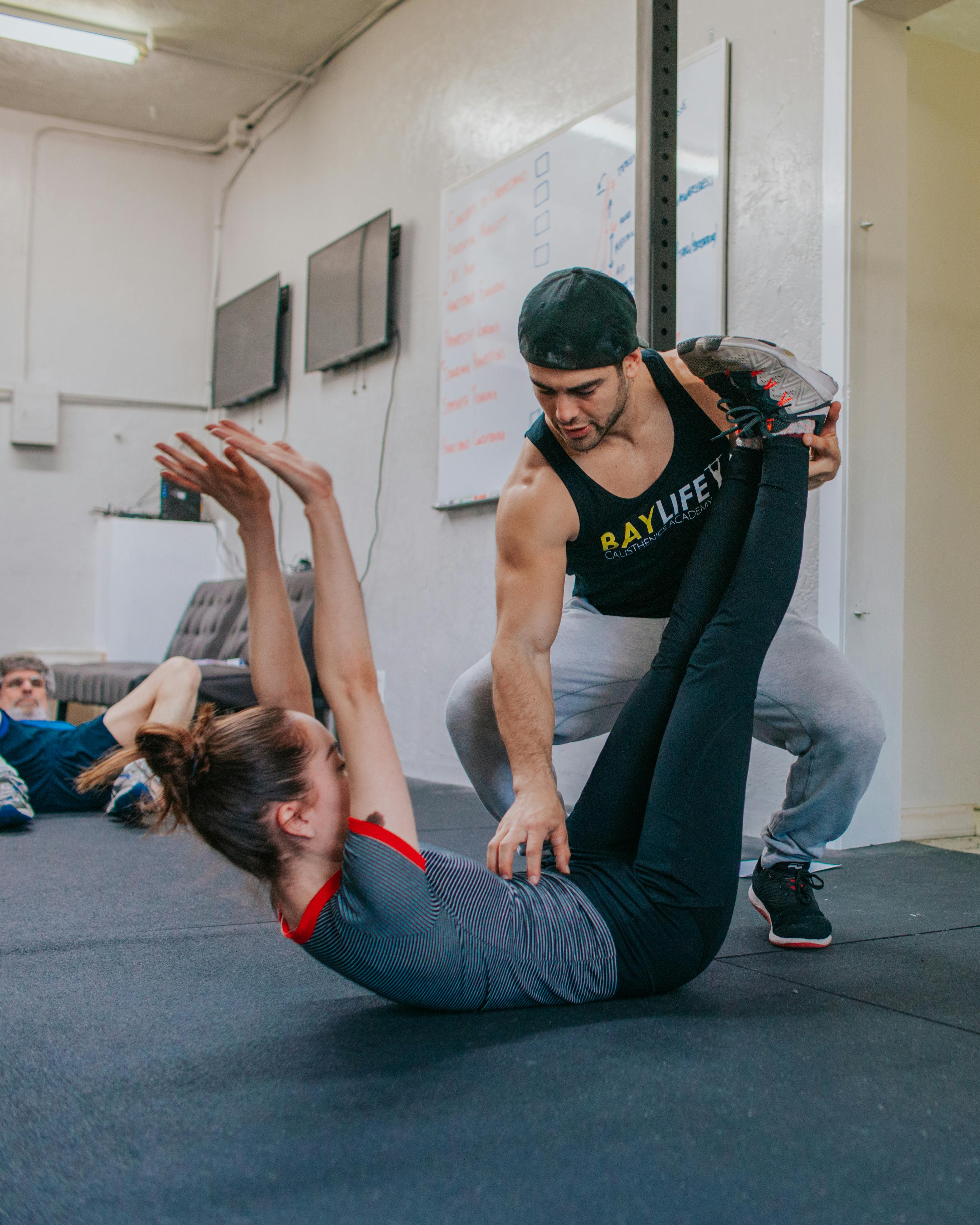In today's fast-paced world, prioritizing health and wellness has become paramount. Many individuals are actively integrating exercise into their daily routines to achieve and maintain optimal physical and mental well-being. It's widely understood that a well-rounded fitness regimen encompassing cardiovascular exercise, flexibility training, and strength conditioning contributes significantly to reducing cardiovascular risk factors like cholesterol and blood pressure, facilitating healthy weight management, fortifying bone density, enhancing sleep quality, boosting energy levels, and ultimately fostering a positive self-image. This holistic approach to fitness not only improves physical health but also positively impacts mental and emotional well-being, fostering a sense of vitality and overall wellness.
Navigating the Fitness Landscape
Embarking on a fitness journey can be daunting, particularly for those who haven't engaged in structured physical activity since their school days. The sheer volume of information available, coupled with the myriad of fitness trends and fads, can create confusion and uncertainty. To ensure a positive and sustainable training experience and to prevent motivation from waning after initial enthusiasm, partnering with a qualified personal trainer can be an invaluable investment. A skilled trainer can provide personalized guidance, create tailored workout plans, and offer the necessary support and encouragement to help individuals achieve their fitness goals effectively and safely. This personalized approach is crucial for long-term adherence and success in fitness endeavors. Furthermore, a personal trainer can help navigate the complex world of fitness information, separating fact from fiction and ensuring that individuals are following evidence-based practices.
The Advantages of Professional Guidance
The accessibility of personal training has increased significantly, with many individuals now recognizing its value and incorporating it into their wellness strategies. Engaging a personal trainer accelerates progress by providing expert instruction on proper exercise technique, establishing structured training plans, and meticulously monitoring progress based on individual needs and goals. This personalized approach maximizes results and minimizes the risk of injury. A professional trainer can also provide valuable insights into nutrition, lifestyle adjustments, and other crucial factors that contribute to overall health and fitness. This comprehensive approach ensures that individuals receive holistic support and guidance, empowering them to make sustainable lifestyle changes. Moreover, the accountability and motivation provided by a personal trainer can be instrumental in overcoming challenges and maintaining consistency, especially during periods of stress or fatigue.
Personalized Assessments and Program Design
A competent personal trainer initiates the process with a comprehensive baseline assessment, encompassing various aspects of health and fitness. This assessment may include a detailed health questionnaire to gather relevant medical history, body composition analysis to determine body fat percentage and muscle mass, strength and endurance tests to evaluate physical capabilities, core functionality assessments to assess stability and balance, range of motion evaluations to identify flexibility limitations, and a thorough analysis of dietary habits and lifestyle factors. These assessments provide a crucial foundation for developing a customized training program that addresses individual needs, goals, and any pre-existing conditions or limitations. For example, if an individual has a history of back pain, the trainer can incorporate specific exercises to strengthen the core and improve posture, thereby reducing the risk of further injury. This personalized approach is essential for optimizing results and ensuring safety.
Motivation, Accountability, and Program Variety
Working closely with a personal fitness trainer fosters motivation and cultivates accountability, two essential components for achieving sustainable fitness outcomes. Often, significant progress lies just beyond one's comfort zone, and the added encouragement, motivation, and support provided by a trainer can be invaluable, particularly after a demanding workday when the allure of relaxation outweighs the desire to exercise. A skilled trainer can provide the necessary push to overcome inertia and maintain consistency. Additionally, strategically varying the training program not only sustains interest and prevents boredom but also optimizes results by challenging the body in different ways. The human body is remarkably adaptable, and an exercise program that initially presents a challenge becomes progressively easier over time. To prevent training plateaus and ensure continuous progress, a qualified fitness trainer can design programs that consistently challenge the body and stimulate further adaptation. This dynamic approach to training is crucial for achieving long-term fitness goals.
Choosing the Right Trainer for Your Needs
Selecting the right fitness trainer is paramount to achieving desired outcomes. If a specific goal, such as weight loss, is the primary focus, it is advisable to consult with potential trainers beforehand to ascertain their expertise in that particular area, including dietary guidance and weight management strategies. Reviewing testimonials and requesting client case studies can provide valuable insights into a trainer's track record and effectiveness. The personal training and fitness industry encompasses a wide range of experience and skill levels, so asking pertinent questions during the initial consultation can provide clarity and build confidence in choosing a particular trainer. Beyond qualifications and experience, rapport and compatibility are essential factors. Given the significant amount of time spent with a trainer, establishing a positive and comfortable working relationship is crucial for maximizing the benefits of personal training. This includes open communication, mutual respect, and a shared understanding of goals and expectations. A good trainer will not only be results-oriented but also empathetic, supportive, and genuinely invested in their client's success.
Personal Training: A Tailored Approach
Personal training is a highly adaptable service that can be customized to suit individual goals, budgets, and schedules. The frequency of sessions can range from multiple times per week for intensive training to once every two weeks for those seeking ongoing guidance and support. Regardless of the frequency, engaging a personal trainer with some degree of regularity provides clarity, support, motivation, consistency, valuable information, structure, and accountability. This holistic approach empowers individuals to take control of their health and fitness and achieve lasting results. The benefits of personal training extend far beyond physical improvements, encompassing enhanced mental well-being, increased self-confidence, and a greater sense of overall vitality. By investing in personal training, individuals are investing in their long-term health and well-being.
Author Resource: Brodrick Kent owns and operates Intelligent Health, a personal fitness training business specializing in individual, group, and corporate training. He is passionate about health, fitness, and education, and is dedicated to helping his clients achieve extraordinary results through informative advice on health and nutrition.
Footnote: Information presented is based on general fitness principles and research in exercise science, nutrition, and behavioral change. Specific sources include publications from the American College of Sports Medicine (ACSM), the National Academy of Sports Medicine (NASM), and research articles on exercise physiology, biomechanics, and health psychology.













